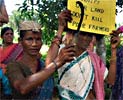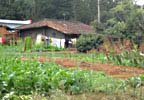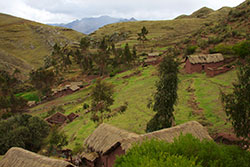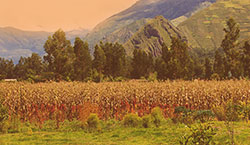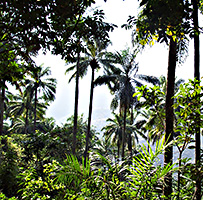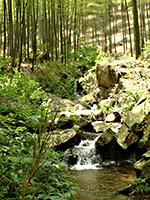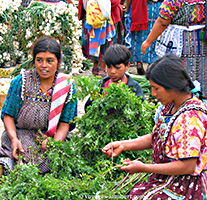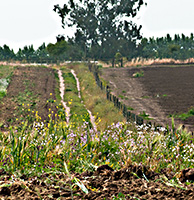A mountain village in Peru – 1912 (1)
'Saint Isidore, don't desert us!'
After a long day of gathering herbs for his sick wife, the old Indian Rosendo Maqui walks back to his village, Rumi. With a smile he sits down on his favourite rock, where he has such a fine view over the village and the valley in which it lies. How the golden wheat sways in the wind, how strongly the amaranth stands upright, how green the potato fields! The cows stay with their calves in one corral, and the horses with their foals in the other, because it is almost evening. Gradually the sun goes down, turning the sky orange and then purple.
In the middle of the village is a small but solid brick church with a short, square tower, wherein a bell hangs, the pride of the village, which can resound so beautifully through the valley. Near the back of the church stands a large wooden statue of Saint Isidore, the tiller, the peasant, the patron saint of Rumi. Perhaps it is because of him that the village flourishes, and that the harvests are abundant, Rosendo muses. Sure, once there had been a famine, when the rains didn’t come for two years in a row, and a smallpox epidemic ravaged the village; but that is all a long time ago and almost forgotten.
Every year there is a colourful procession on the name day of Saint Isidore, at which villagers carry around his statue on a stretcher filled with vegetables and fruits. It is a day of dancing, music and chicha, maize beer. And the poor are not forgotten. Saint Isidore has nothing to complain about.
On his trips through the mountains, Rosendo has seen the ruins of abandoned villages. He knows about them, but every time it makes him sad to see them. In one village the plague has done its destructive work; at another a ranchero, a big farmer, has taken over the fields and the meadows. The inhabitants had no choice but to become a farm hand at the big ranch, where they soon fell into debt, and thus became slaves.
Amazing that Rumi is still a free community, Rosendo thinks, and with both his index fingers he strokes his slight moustache. Saint Isidore, don't desert us!
_______________________
Source
The beautiful novel Broad and Alien is the World (1941) from the Peruvian author Ciro Alegría describes in 600 pages all the facets of Indian peasant life.
Go to:
= part 2: Moving - a mountain village in Peru – 1926 (2), story 76.
= the next page: Serf or free servant? - an estate in Hungary – 1912 (2), story 56.
= the Table of contents, story 55.
